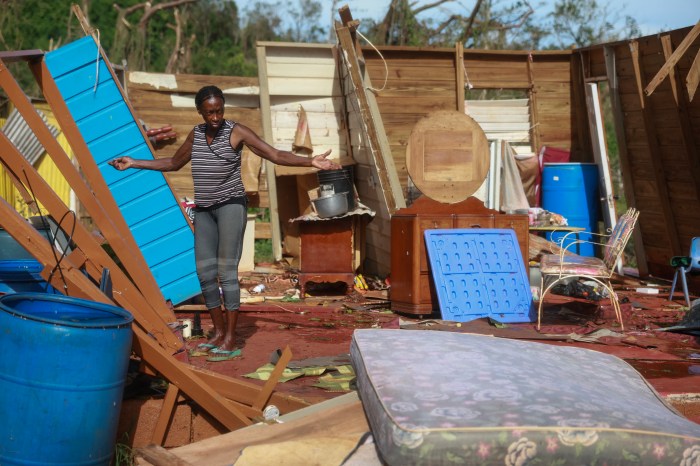VERON, Dominican Republic (AP) — As soaring violence and political turmoil grip neighboring Haiti, the Dominican Republic will hold elections Sunday that have been defined by calls for more crackdowns on migrants and finishing a border wall dividing the countries.
Politics in the two Caribbean nations sharing the island of Hispaniola have long been intertwined. Haiti’s spiral into chaos in recent years has coincided with a harsh crackdown by its Dominican neighbor.
President Luis Abinader, a clear frontrunner race as he seeks reelection in the presidential race, has begun to build a Trump-like border wall along Haiti’s border and carried out mass deportations of 175,000 Haitians just last year. Dominicans also will be choosing members of Congress.
“We will continue to deport everyone who is illegal from any country,” Abinader said in a debate in late April. “A society that doesn’t do that is chaos and anarchy.”
Abinader, who has also pledged to strengthen the nation’s economy, said he would finish construction of the border wall with Haiti. His closest competitors – former President Leonel Fernández and Santiago Mayor Abel Martínez – have echoed his calls to ramp up the actions against migration.
The crackdown has marked an intensification of longtime policies by the Dominican government that human rights groups have alleged are discriminatory and put vulnerable people at risk.
Fernández, of the People’s Force party, said Dominicans were “afraid to go out into the streets” despite Abinader’s policies. He also said he would continue crackdowns while respecting human rights.
Dominican voters seem to be rewarding Abinader for the crackdown, with the incumbent favored to get more than the 50% support needed to win in the first round of voting. If no candidate reaches the 50% mark a runoff between the top vote-getters would be held.
Ana Pagán, a 34-year-old supervisor at a communications company in the country’s capital of Santo Domingo, said she approved of the border wall being built and the measures taken by the government.
“No foreigner who wants to stay here in the Dominican Republic should do so illegally, and that’s what (the government) has said,” she said.
However, Pagán said the wall doesn’t solve all of the country’s issues, and she referred to what have been the other key electoral issues for Dominicans: crime and endemic corruption. Pagán said many of the country’s security problems come from corrupt officials allowing smuggling and other crimes.
While Dominican voters want continued a government crackdown on migrants, many of the hundreds of thousands of Haitians in the Dominican Republic live in fear.
Haiti, long stricken by tragedy, has been in a downward spiral since the assassination of President Jovenel Moïse in 2021. Gangs have warred for power, injecting terror and turmoil into the lives of many in the Caribbean nation.
In recent weeks – following the prime minister’s resignation – a transition council tasked with choosing Haiti’s new leaders has offered a small dose of hope of easing some of the country’s many woes.
The ongoing violence has forced many to flee their homes and seek refuge in places like the Dominican Republic and the United States. The Dominican government’s policies have stirred concerns among both newly arrived migrants and Haitians that have long called the Dominican Republic home.
Yani Rimpel, a 35-year-old Haitian businesswoman in the eastern city of Veron, has lived in the country for 20 years. She told the AP she’s never seen such uncertainty among Haitian communities, something she attributes to Abinader’s migratory policy.
Two weeks ago, she said immigration agents broke into her house at dawn with heavily armed soldiers in tow. She said they searched the house and stole cash she saved up to buy and sell merchandise, leaving her without any means to support herself.
“If (Abinader) stays in power, I can’t live here. I’m going to have to move back to my house in Haiti. Because here I have no value. I’m not safe. I don’t have a way to live here if he continues” as president, she said.
——
Megan Janetsky reported from Mexico City.























